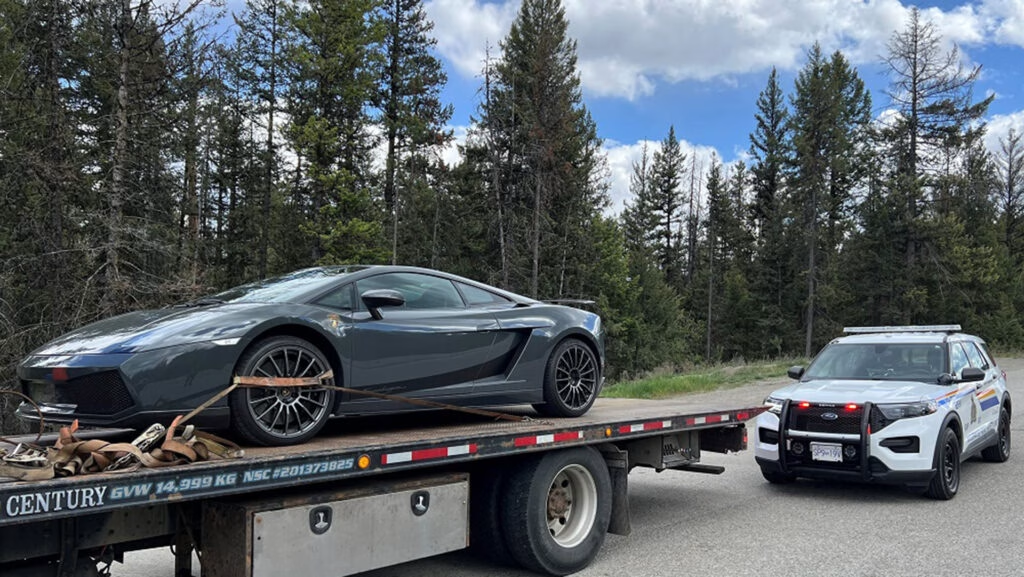What Happens When You’re Caught Speeding in a Supercar in Canada?
Imagine getting ready for a day at the racetrack, adrenaline already pumping, only to have your plans derailed by flashing lights and a stern police officer. That’s exactly what happened to a 26-year-old in North Vancouver, who was clocked at 130 km/h in an 80 km/h zone—behind the wheel of his mom’s Lamborghini Gallardo. The result? Pure magic. If by magic you mean a seven-day impound, thousands in fines, and one very awkward phone call home.
Why Does Speeding in British Columbia Lead to Such Severe Consequences?
British Columbia doesn’t mess around when it comes to excessive speeding. According to provincial law, driving more than 40 km/h over the posted limit means your car is automatically impounded for seven days. No warnings, no second chances. The logic is simple: higher speeds dramatically increase the risk of serious crashes. Transport Canada data backs this up, showing that speed is a factor in nearly one-third of fatal collisions nationwide.
But it’s not just about safety. The financial sting is real. In this case, the driver faced a $368 excessive speed fine, a $109 ticket for not having a front plate, plus towing and storage fees. And that’s just the start—insurance premiums for high-risk drivers in BC can skyrocket for years, often adding thousands more to the total bill.
Is Taking Your Supercar to the Track Really That Different from Public Roads?
Here’s where things get interesting. The driver told police he was on his way to a racetrack. On the surface, that sounds reasonable—after all, racetracks are designed for speed. But there’s a world of difference between a closed circuit and a public highway. At the track, everyone’s expecting high speeds, safety crews are on standby, and the environment is controlled. On public roads? Not so much. You’re sharing space with families, cyclists, and folks just trying to get home in one piece.
Cpl. Michael McLaughlin from BC Highway Patrol summed it up perfectly: “Had he driven more responsibly, he could have had a great day at the track. Instead, he had an awkward conversation with mom.” Ouch.
How Much Does a Speeding Ticket Really Cost in the Long Run?
Let’s break down the numbers. The initial fines and fees in this case topped $2,500 CAD. But the real kicker is the insurance. In BC, drivers flagged for excessive speeding are classified as high-risk for three years. According to the Insurance Corporation of British Columbia (ICBC), that can mean an extra $1,000–$2,000 per year in premiums. So, that “quick” drive could end up costing $5,000 or more before all is said and done.
And that’s before you factor in the cost of family drama. Explaining to your mom why her prized Lamborghini is sitting in an impound lot? Priceless. Or, depending on your family, very, very costly.
What Can Drivers Learn from This Costly Mistake?
It’s easy to roll your eyes at stories like this—another young driver, another supercar, another headline. But there’s a bigger lesson here. Public roads aren’t the place to test your limits, no matter how tempting it is when you’re behind the wheel of something exotic. Police in BC and across Canada are ramping up enforcement, especially as summer brings more high-performance cars out of hibernation.
If you’re itching for speed, book a track day. Not only is it safer, but you’ll also get to push your car (and yourself) in ways that just aren’t possible on the street. Plus, you’ll avoid the fines, the insurance hikes, and the family fallout.
The big takeaway? Staying safe—and legal—behind the wheel isn’t about perfection. It’s about making smarter choices. Start with one change this week—maybe it’s leaving a little earlier, or finally signing up for that track day. Odds are, you’ll notice the difference by month’s end. And your wallet (and your mom) will thank you.

